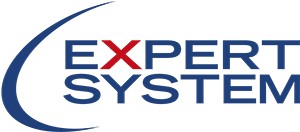Expert system

Alternatively called a rule-based system, an expert system is a program that performs tasks normally handled by people with vast knowledge in a certain area. For example, an "expert system" may schedule train departures and arrivals, or diagnose a disease. Rule-based systems are a branch of artificial intelligence; they use reasoning based on facts to determine the answer to questions.
When searching on Computer Hope, you're using an expert system we call Hopebot to help assist with computer-related questions. Hopebot relies on our online knowledge base of free computer information developed over the last 20 years and a database of hundreds of thousands of computer-related questions. This information is what computer experts have from working with computers, but as a system, it's accessible to everyone 24/7.
How an expert system could work
There's no exact set of rules for developing an expert system. However, as an example, we'll give an overview of how Hopebot handles a search performed on Computer Hope.
In this example, we'll assume the user is searching for the question "How do I turn on my computer?"
- Parse the search query text for common spelling, grammar, or other errors that should be fixed.
- Go through several if-then rules, which help decide how to handle the query.
- Decide that the query is a computer question and parse through the database of questions generated from the knowledge base.
- Find a match in the database associated with the answer to the question and forward them to the answer page.
Unfortunately, most searches are not this straightforward for many reasons. If the system cannot decide how to handle the search, the query is broken up, and the keywords are processed by rules similar to those mentioned earlier. If these rules are still unable to answer the query, the user is shown search engine results.
Artificial intelligence terms, Expert, Inference engine, Software
